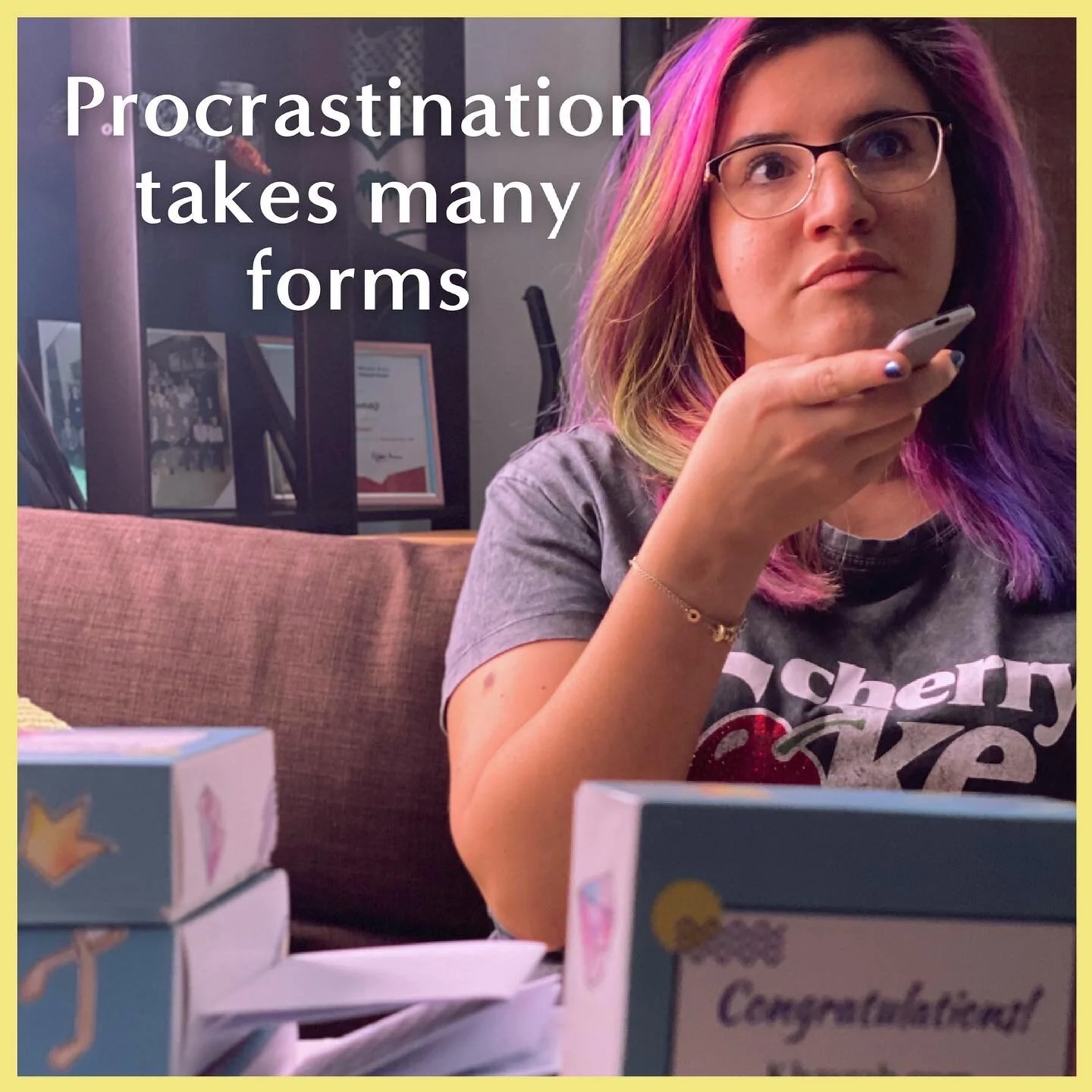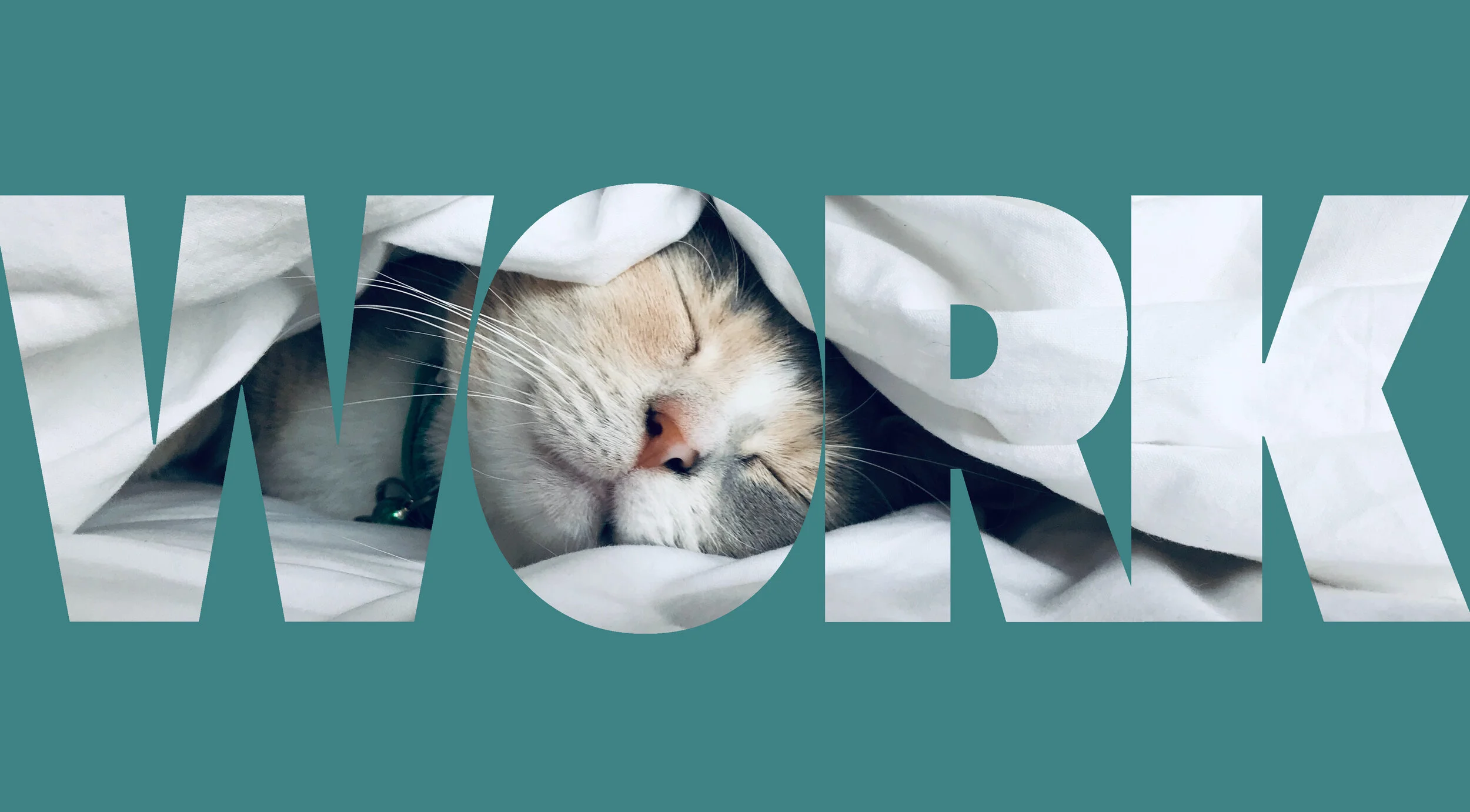Hi and welcome back :)
Isn’t it great to have had an experience where chaos and panic was welcome? It was such a pleasure to connect in with you in such a unique way at MGF, but there won’t be much panic talk here today.
Here is the basics of the conclusion you may have missed. Do reach out to me on any of the socials and let me know what you think.
You can also set up a call for my Foundation Program.
There are 3 YOUs that exist:
1. YOU that you see
2. YOU that others see
3. YOU that you think others seeNumber 3 is, from my experience, where our over-thinking and invisibility comes from. The exercise we did together is called the Johari Window, it’s a way to find out (1) the you that is hidden from others, (2) the you others see and you already know, (3) the you that others see but you don’t.
Yes! That is confusing. We never think about what we’re blind to and we definitely don’t go to people in our lives with a clipboard asking for their feedback.
Uniqueness isn’t about being different, it’s about embracing you.
What we found in our Q&A was…
It was easier it was to not over-think when we didn’t know the “should”s. No one knew what was supposed to be happening, so we were focused on being curious and learning
Breathing at the end was a great way to shift out of one phase and into another
Vulnerability isn’t accepted in the work place even though it has been proven to be effective
I hope I covered everything we discussed. If you’d like to fill in your own Johari Window, check out this tool by Kevan.
And finally, here are more resources on self-confidence in visibility, including panic:
Identity, uniqueness, and differentiator are just some words that describes the root of what makes a brand, including personal brands, memorable and attractive.
It's a little fuzzier for a personal brand because our sense of identity and confidence around it doesn't have much guidance or principles that we speak openly about as a community. Let's explore with Sarah Alamoudi!
Turning off to work better is counter-intuitive BUT the greatest asset to your personal brand. It's so easy to choose activities you're good at instead of talking about what you're good at, but you and I both know that leaves you with less opportunities. Let's explore!
The tools of power, authority, and control that we’ve been provided from our modern society only gives us the illusion of being our true selves. This causes pain in us that comes out as procrastination, imposter syndrome, and comparison. Finding the 100% line helps us set up the boundaries and self-compassion to get back to our authentic selves. Here’s 5 steps on how.
When I notice I’m not doing a task, I say “oh, I guess I don’t want to do it”. The difference between my next step and what my new clients do are very different.
I’ve been recording my moments of procrastination for the past nine years. That is every time I procrastinated for more than 15 minutes. This is insane, and I wouldn’t recommend starting this way. It came of necessity when I was diagnosed with Attention-Deficit Hyperactivity Disorder (ADHD) when I was 10 years old (1997). This self-research paid off when I got my MBA and became self-employed.
Here is everything I learned about procrastination:
tl;dr: Procrastination is your wise body taking energy and time you didn’t provide to it.
Intro Calls are back! Book yours today.
Introductory calls with me are an hour on Zoom for us to co-create clarity of where you are and where you want to go in your personal brand and productivity. It's all connected when we talk about personal branding, because your brand is already set!
It's up to you to take management of your brand instead of letting it manage you.
My biggest strength is being a fixer, a coach, and to do it with a determination to see it through to the end.
Attendees and students of 100% — A Life Approach will recognize the shadow of this habit: Being a rescuer in a drama triangle. It leads me to be insensitive, because I’m passionate about fixing instead of empathizing with compassion.
And now my biggest challenge to really embody the celebration I urge my clients to experience is to take time to focus on myself. Self-care for me is to get in touch with my needs, which ignoring always leaves me resentful as a persecutor (Drama Triangle reference). Self-care for me is to get in touch with reality, which ignoring by overworking leaves me confused as a victim (Drama Triangle reference).
It’s our perception of of our life that scares us, hurts us, angers us, and frustrates us. There are very big very valid exceptions in relationships and traumatic events, but this article focuses on our perception of the world when no one else is around.
Let’s explore the different your different versions that you’re comparing yourself to and how to make peace with it 💫
I was diagnosed with Attention Deficit Hyper-Active Disorder (ADHD), Generalized Anxiety Disorder, Depression, and Bipolar II, and yet I have been able to complete an MBA, co-found a podcasting network, and build up khayrab.com from a place of excitement and alignment.
Let me walk you through techniques and beliefs that can support you during this uncertain time.








Here are three ways to see if your ego is hijacking your chance of true innovation through collaborative relationships.
“I will hurt for you”
You may decline help because you’re the strong one – it’s your identity. Asking someone else to struggle the way you do seems selfish at best. You may decline help because the feeling of someone thanking you is too good to give to someone else. It’s a popular myth that you can only get true recognition by struggling through weakness instead of serving from strengths.
“I can’t”
You may decline help because the effort of being the solution-person is too big a responsibility. The goal is too big and unwieldy for you to even start thinking about, so how in the world could you put into words what you’d need from others? This can also be tied to perfectionism where no one else can get to the standard that you know it should be. Obviously, you can’t trust anyone else with this.
“I told you so”
Once you give it a go and try to ask for help, you are disappointed and nothing got done. This always happens when someone else tries to get involved, it just isn’t right. Resentment, blame, and isolation bubbles up in you, keeping you in your comfort zone of lonely struggle.